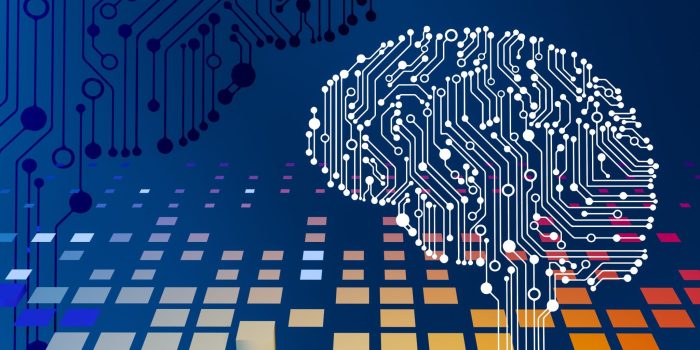WATCH OUR VIDEO

Why Should Senior High School Students Learn AI and Python?
Relevance to the Future Job Market:
AI is a rapidly growing field, and there is a high demand for professionals with AI skills. Learning AI and Python at a young age prepares students for future career opportunities.
Critical Thinking and Problem Solving
AI encourages students to think critically and solve complex problems. The process of creating AI models involves understanding algorithms, experimenting, and refining solutions.
Creativity and Innovation
AI projects often involve creativity and innovation. Students can explore and develop unique applications of AI, fostering their creativity and problem-solving abilities.
Interdisciplinary Applications
AI is not limited to computer science; it intersects with various disciplines. Students can apply AI concepts to subjects like biology, physics, economics, and more, expanding their understanding of interdisciplinary connections.
Enhanced Computational Thinking
Learning to program in Python, a versatile and beginner-friendly language, enhances students’ computational thinking skills. Python is widely used in AI development, making it a valuable language to learn.
Preparation for Higher Education
Many universities and colleges include AI and Python programming in their computer science curriculum. Familiarity with these topics gives students an advantage in higher education.
Ethical Considerations
Understanding AI also involves discussions on ethics and responsible AI development. Senior high school students can engage in conversations about the ethical implications of AI, preparing them for responsible technology use in the future.
Course Overview:
Syllabus Outline
Week 1: Foundations of Artificial Intelligence
- Ice-breaking activities
- Overview of the course structure and objectives
- Understanding the significance of AI in today’s world
- Introduction to Python basics: syntax, variables, and data types
- Hands-on coding exercises to build a strong foundation in programming
- Introduction to Python programming language
- Hands-on coding exercises to build a foundational understanding
- Data Manipulation with Python
- Exploring libraries like NumPy and Pandas for data manipulation
- exercises in data cleaning and preprocessing
- Exploring the role of data in AI
- Basics of data collection, cleaning, and analysis
- Understanding the concept of machine learning
- Overview of supervised and unsupervised learning
- Case studies showcasing real-world applications
- Hands-On Machine Learning with Scikit-Learn
- Practical sessions using Scikit-Learn for implementing machine learning algorithms
- Supervised learning: Regression and Classification
- Implementing Your First ML Model and Neural Networks and Deep Learning
- Guided project work applying the learned Python and machine learning concepts
- Presentations and feedback on the projects
- Introduction to neural networks
- Basic architecture and functioning of deep learning models
- Hands-on activities with simple neural network implementation
Week 2: Applications of Artificial Intelligence and Advanced AI Concepts and Applications
- Understanding the basics of neural networks
- Building a simple neural network using TensorFlow and Keras
- Understanding how AI interprets visual information
- Hands-on exercises with image recognition and object detection
- Computer Vision with Python and OpenCV
- Exploring computer vision applications in AI
- Practical sessions using OpenCV for image processing
- Discussion on ethical considerations in AI
- Exploring the importance of responsible AI development
- Guest speakers from various industries sharing their experiences
- Interactive sessions on AI in healthcare, finance, and other sectors
- Group project assignment incorporating learned concepts
- Final presentations and peer evaluations
- Closing ceremony, certificate distribution, and reflections on the course
Workshop
These workshops are designed to provide a comprehensive learning experience for senior high school students interested in AI and Python. Adjust the complexity based on the students’ prior knowledge and the overall duration of the summer course.
This workshop structure aims to balance theoretical understanding with hands-on experience, allowing participants to gain practical skills in implementing facial recognition systems using AI and ML concepts.
Objective: Establish a foundational understanding of Python programming.
-
- Basic Python Syntax:
- Variables, data types, and operators
- Control structures: if statements, loops
- Functions and Modules:
- Defining functions
- Importing and using modules
- Hands-On Coding Exercise:
- Simple Python programs to reinforce concepts
- Basic Python Syntax:
Objective: Introduce students to data manipulation using Python.
-
- Introduction to Libraries:
- Overview of NumPy and Pandas for data manipulation
- Data Cleaning and Preprocessing:
- Handling missing data
- Data normalization and scaling
- Practical Exercise:
- Cleaning and preprocessing a sample dataset
- Introduction to Libraries:
Objective: Provide an overview of machine learning concepts.
-
- Basic Machine Learning Concepts:
- Supervised vs. unsupervised learning
- Classification and regression
- Introduction to Scikit-Learn:
- Overview of the Scikit-Learn library
- Training and evaluating a simple model
- Hands-On Exercise:
- Building a basic machine learning model
- Basic Machine Learning Concepts:
Objective: Provide an overview of machine learning concepts.
-
- Basic Machine Learning Concepts:
- Supervised vs. unsupervised learning
- Classification and regression
- Introduction to Scikit-Learn:
- Overview of the Scikit-Learn library
- Training and evaluating a simple model
- Hands-On Exercise:
- Building a basic machine learning model
- Basic Machine Learning Concepts:
Objective: Explore the applications of AI in processing natural language.
-
- Introduction to NLP:
- Tokenization, stemming, and lemmatization
- Sentiment analysis basics
- NLP Libraries in Python:
- Overview of NLTK or SpaCy
- Practical NLP Exercise:
- Implementing a basic sentiment analysis model
- Introduction to NLP:
Objective: Explore the role of AI in interpreting visual information.
- Introduction to Computer Vision:
- Basics of image processing
- Object detection and recognition
- Hands-On Exercise with OpenCV:
- Implementing image processing tasks
- Computer Vision Applications:
- Discussing real-world applications of computer vision
Objective: Emphasize the importance of ethical considerations in AI development.
- Ethical AI Principles:
- Bias and fairness
- Transparency and accountability
- Case Studies:
- Analyzing ethical considerations in AI projects
- Discussion and Reflection:
- Engaging students in ethical discussions and reflections
Objective: Apply learned concepts to a collaborative AI project.
- Project Planning:
- Defining project scope and goals
- Implementation:
- Guided project work with mentors
- Presentation and Evaluation:
- Final presentations and peer evaluations
Course Features:
- Practical Coding: Daily hands-on coding exercises to reinforce Python and machine learning concepts.
- Project-Based Learning: Apply learned skills to real-world projects.
- Interactive Labs: Engage in interactive lab sessions for a deeper understanding.
- Guest Speakers: Industry professionals sharing insights on Python and machine learning applications.
- Ethical AI: Emphasize ethical considerations in AI and responsible machine learning practices.
Learning Objectives:
- Critical Thinking and Problem-Solving:
- Develop critical thinking skills in problem-solving using AI.
- Collaboration and Communication:
- Foster collaboration and effective communication in group projects.
- Adaptability and Curiosity:
- Cultivate an adaptable mindset and curiosity about AI advancements.
By addressing these learning objectives, the AI course for high school students aims to provide a comprehensive understanding of AI concepts, practical skills in Python programming and machine learning, ethical considerations, and the ability to apply these skills to real-world projects. The course aims to inspire curiosity and lay the groundwork for further exploration in the field of artificial intelligence.



